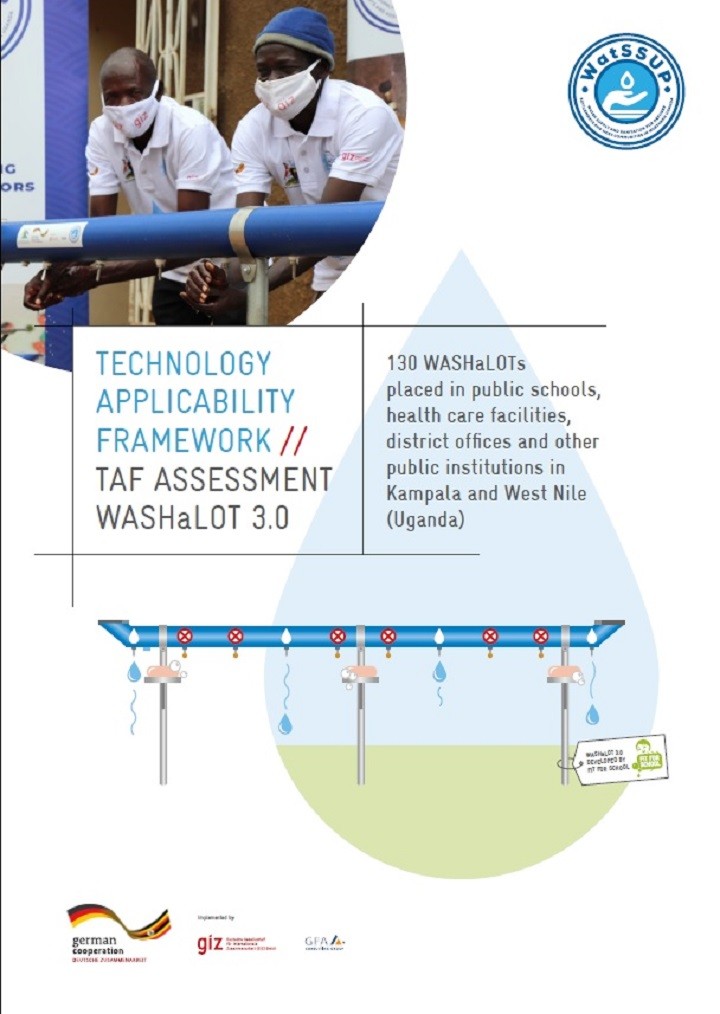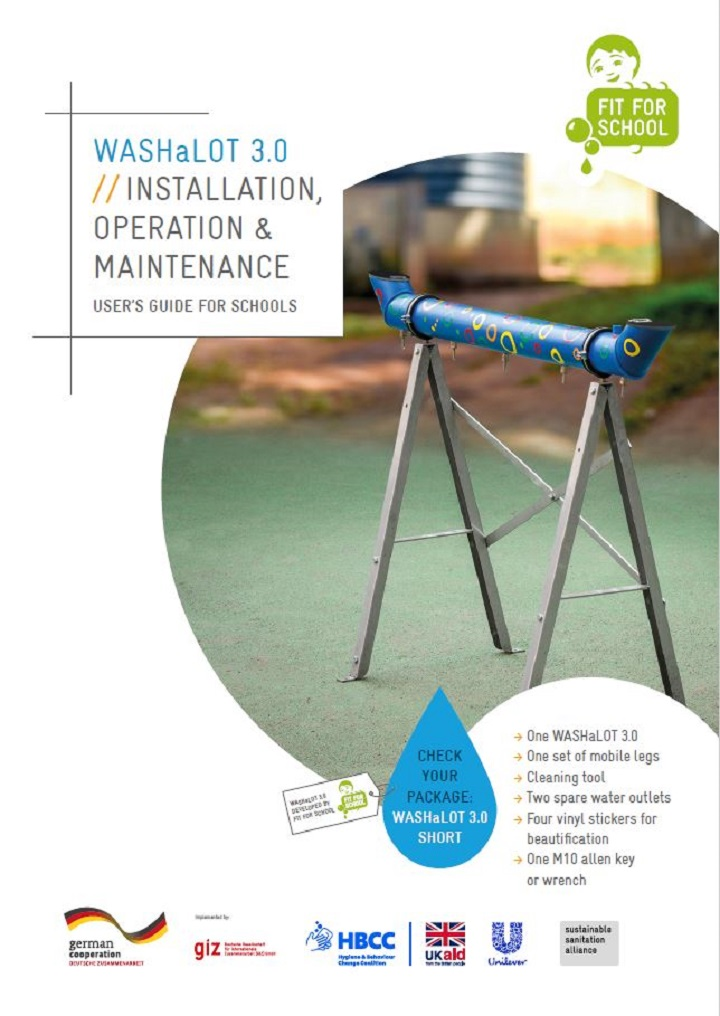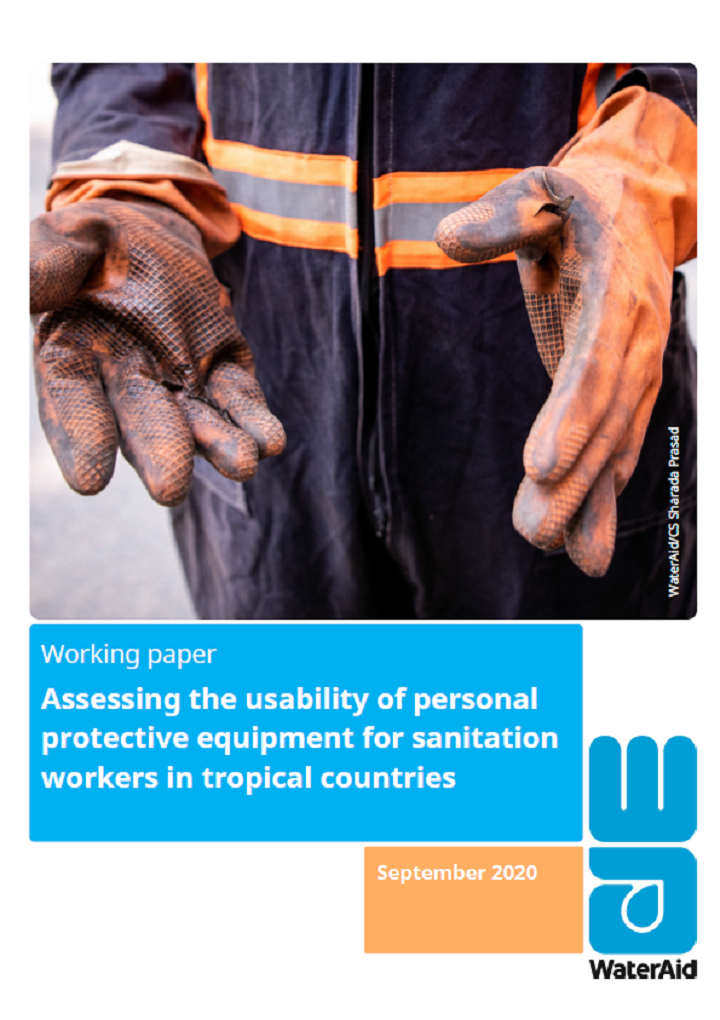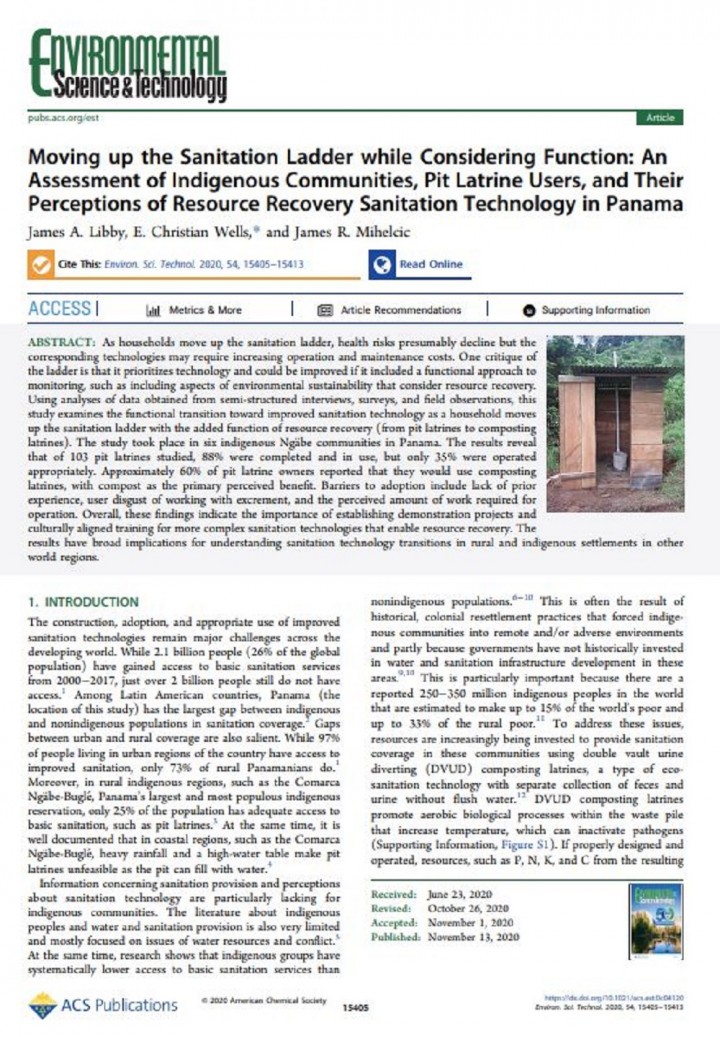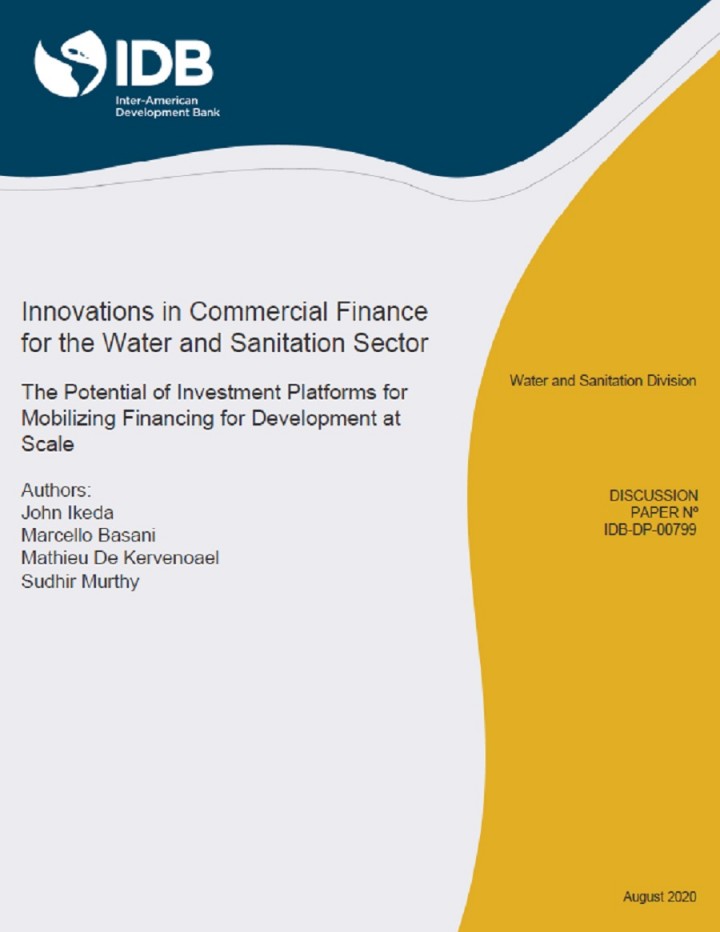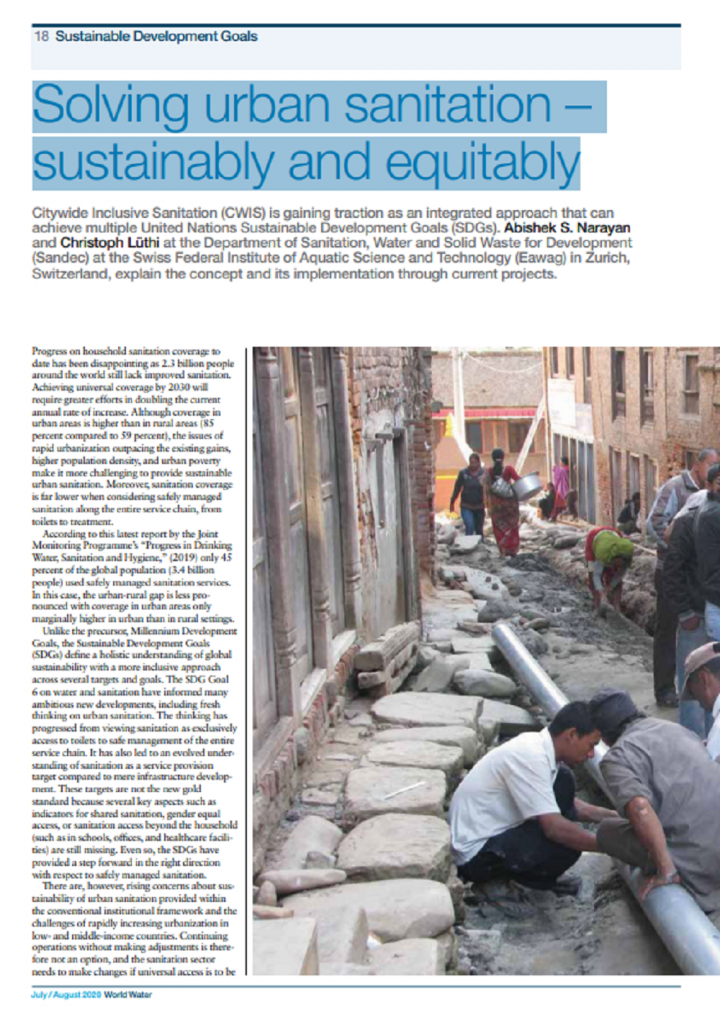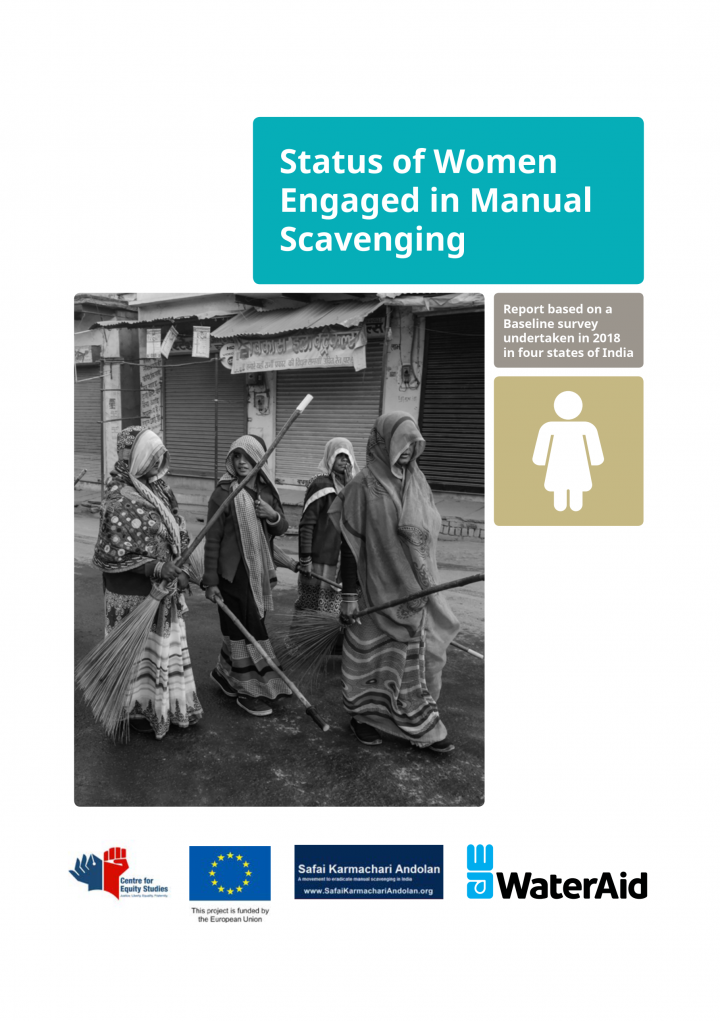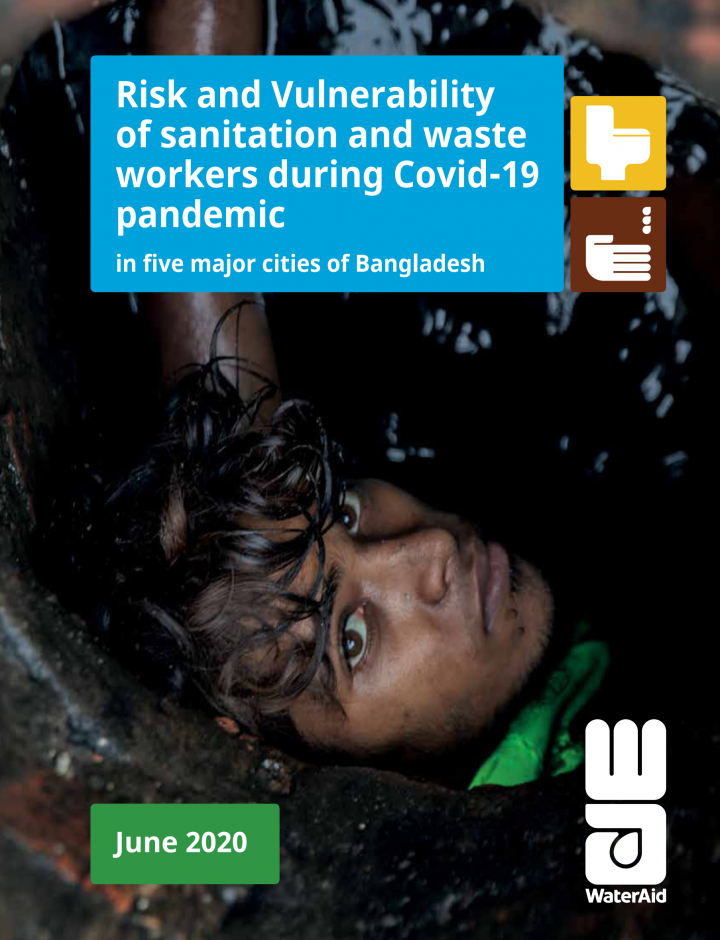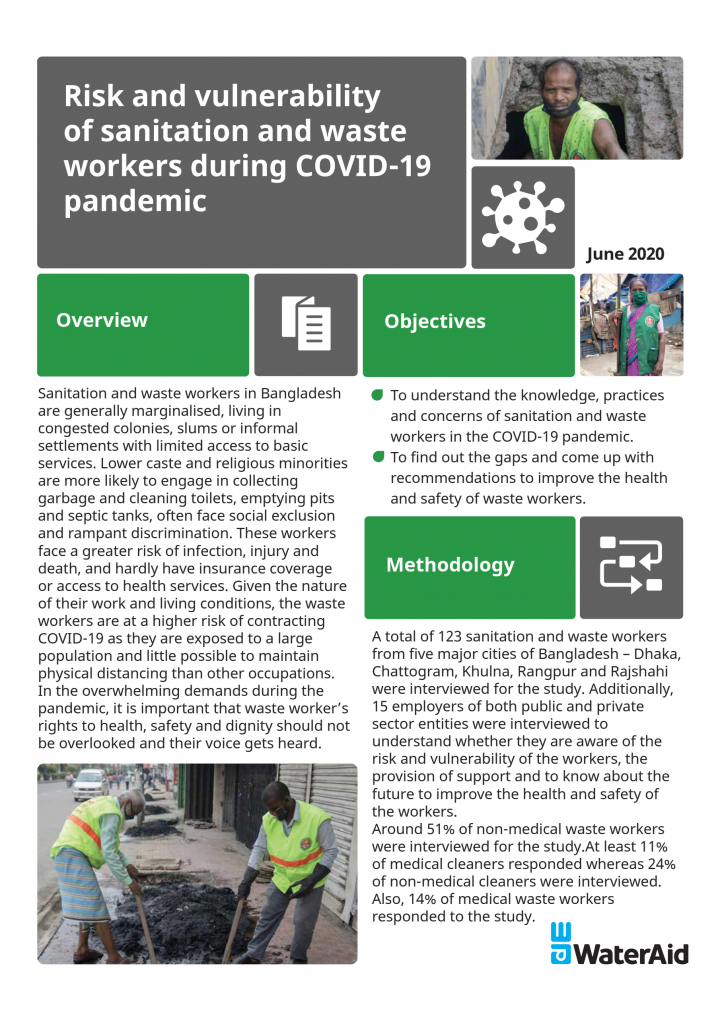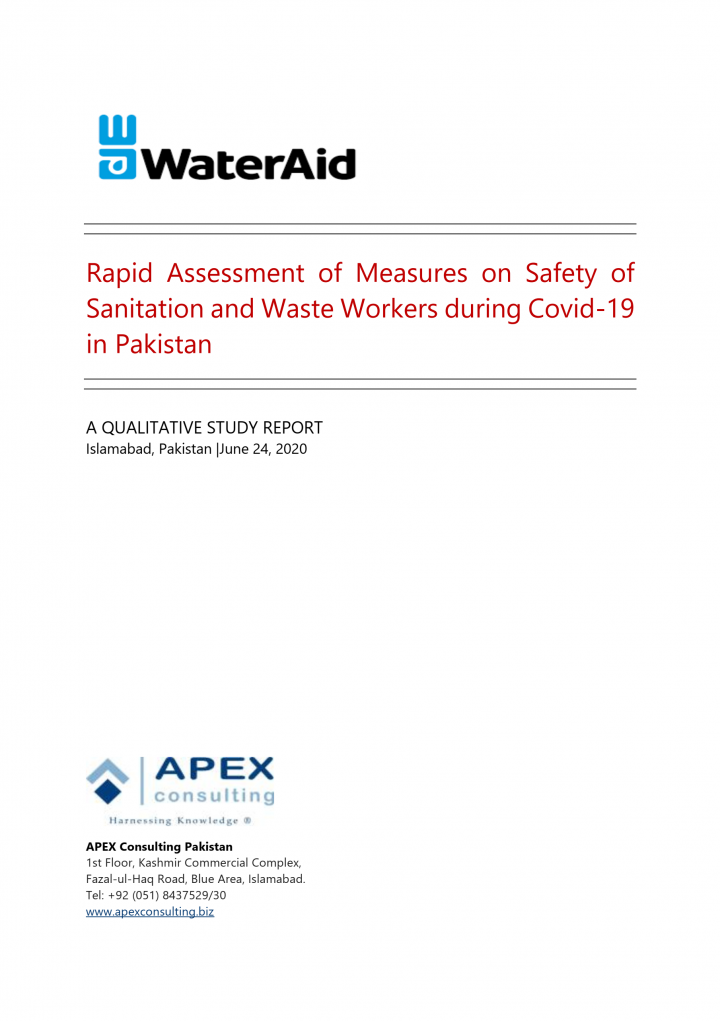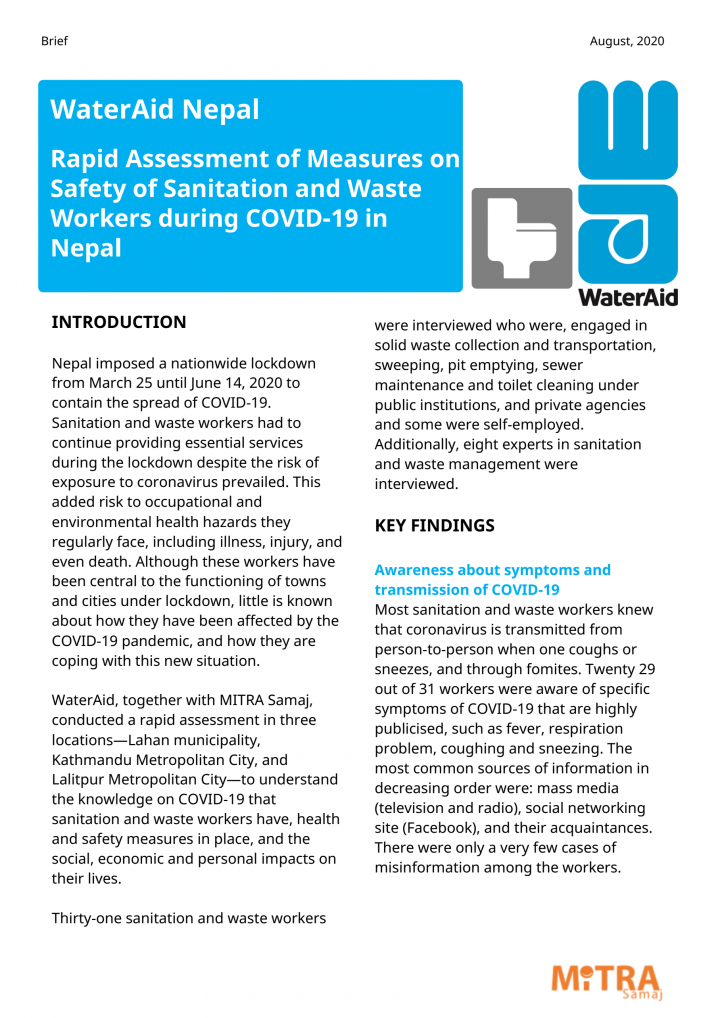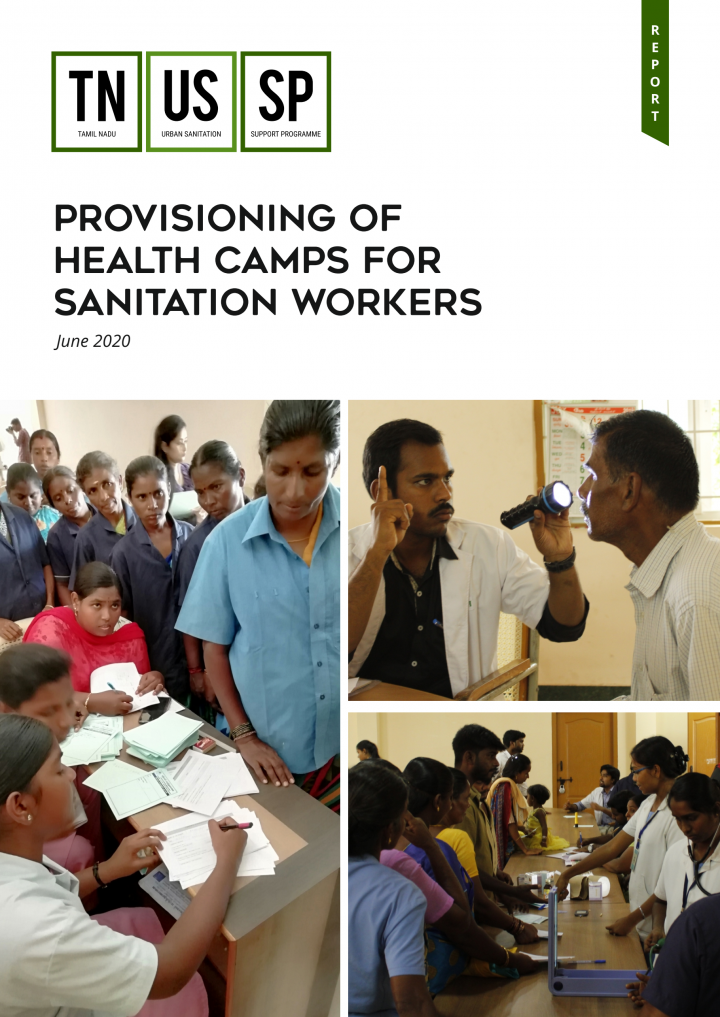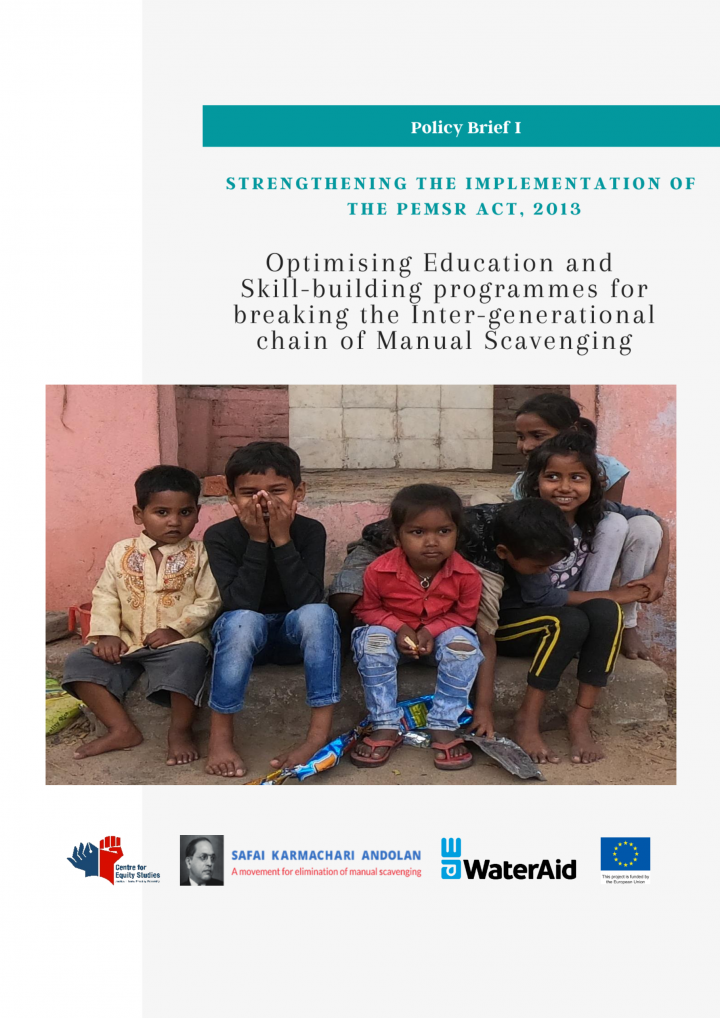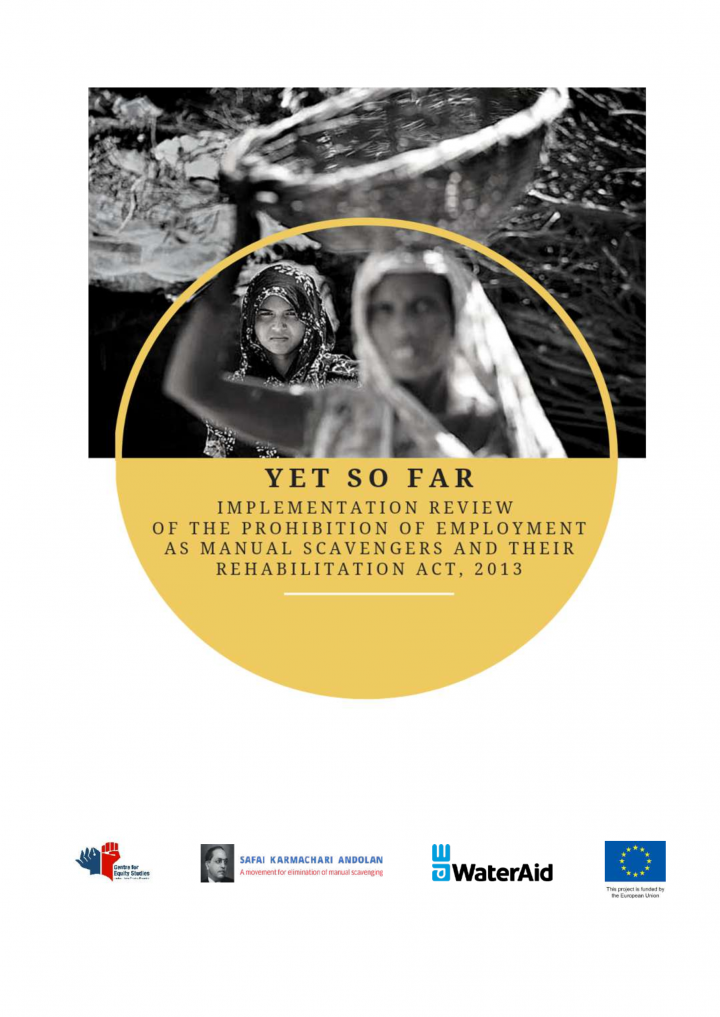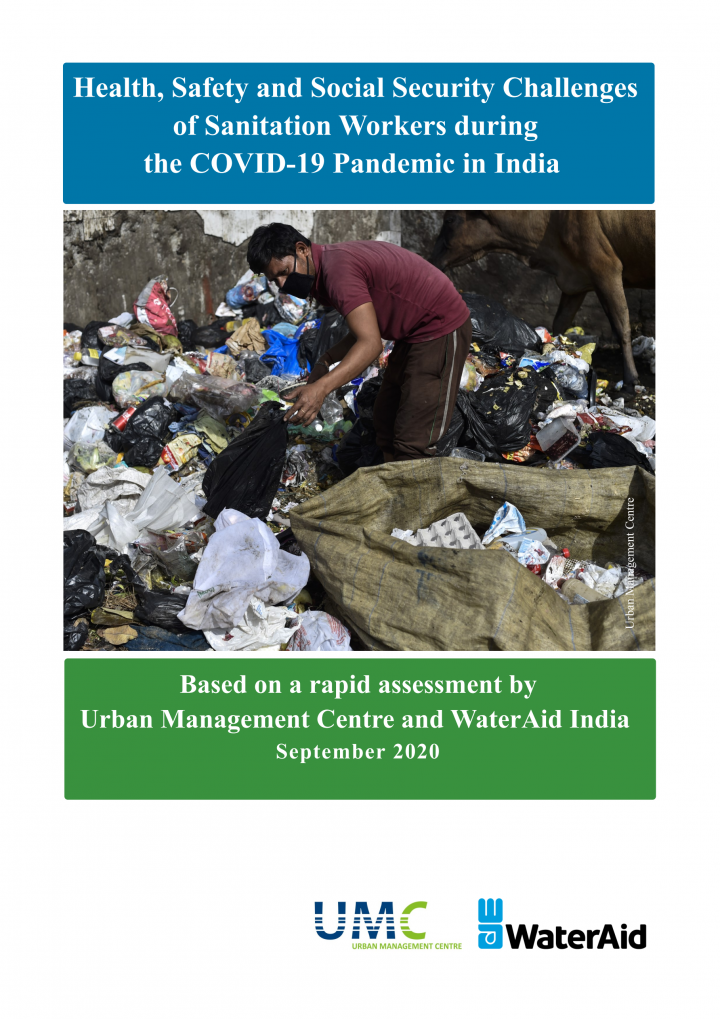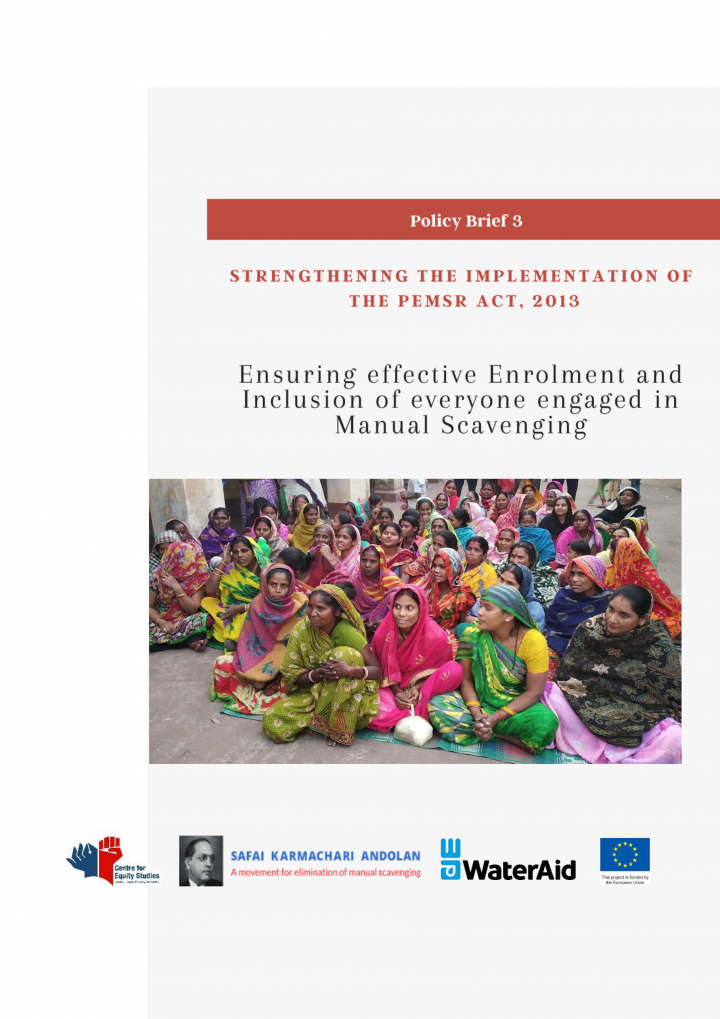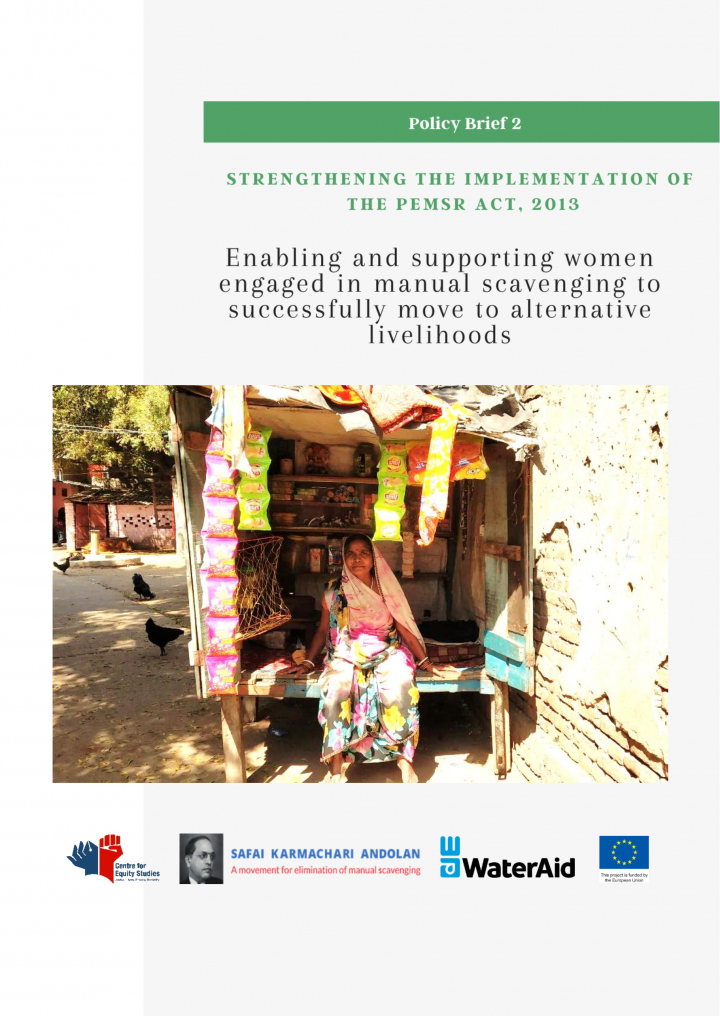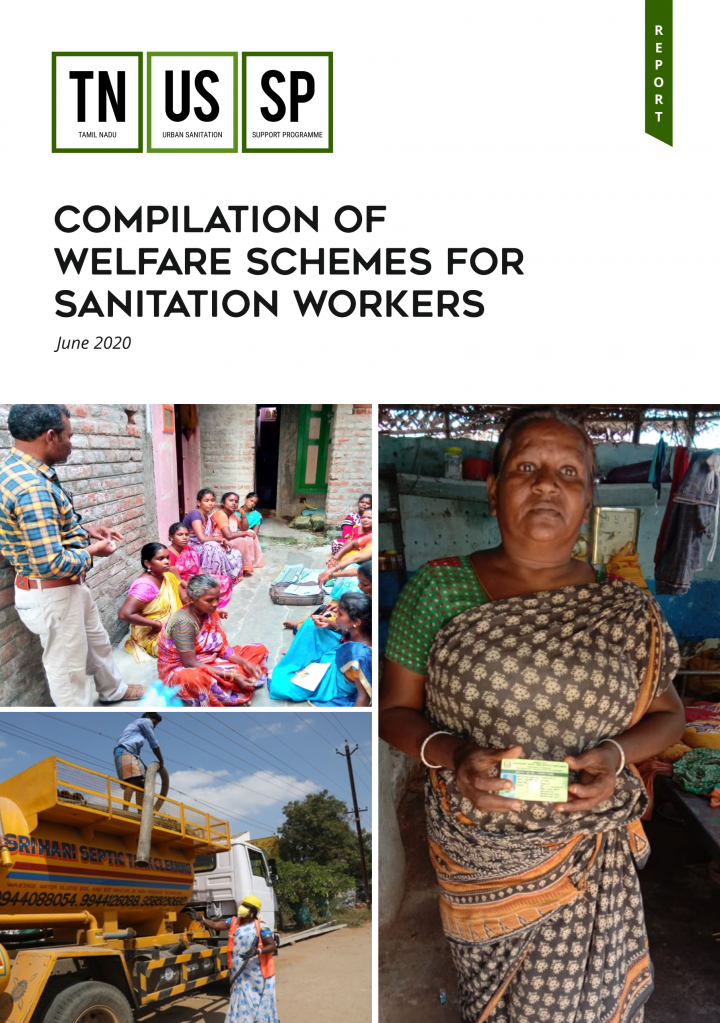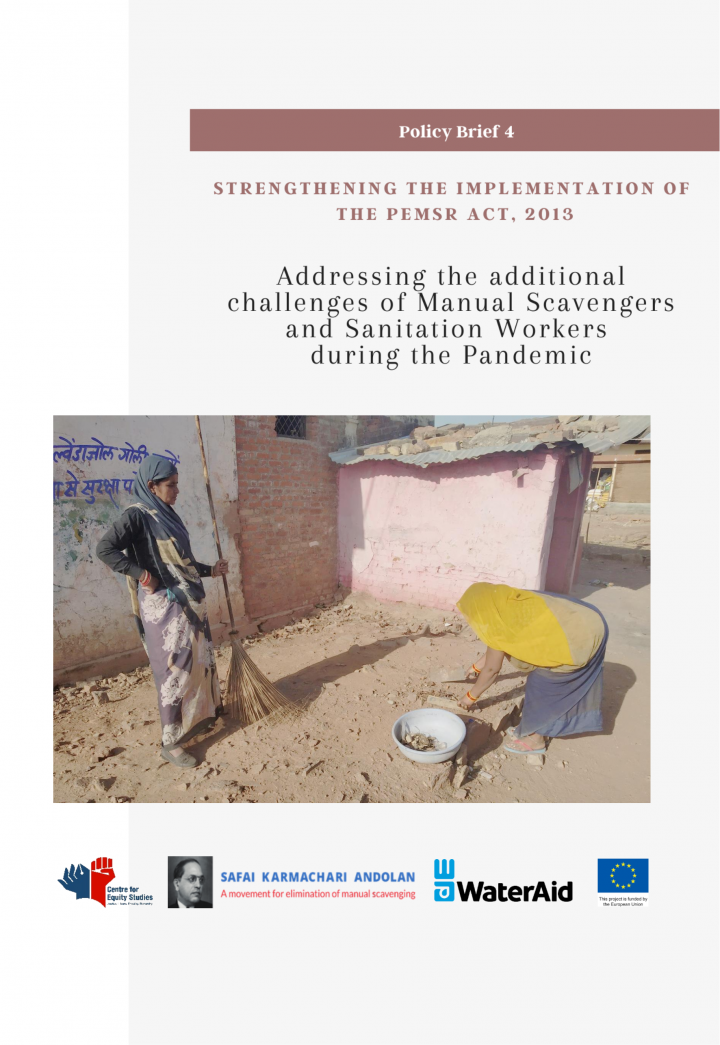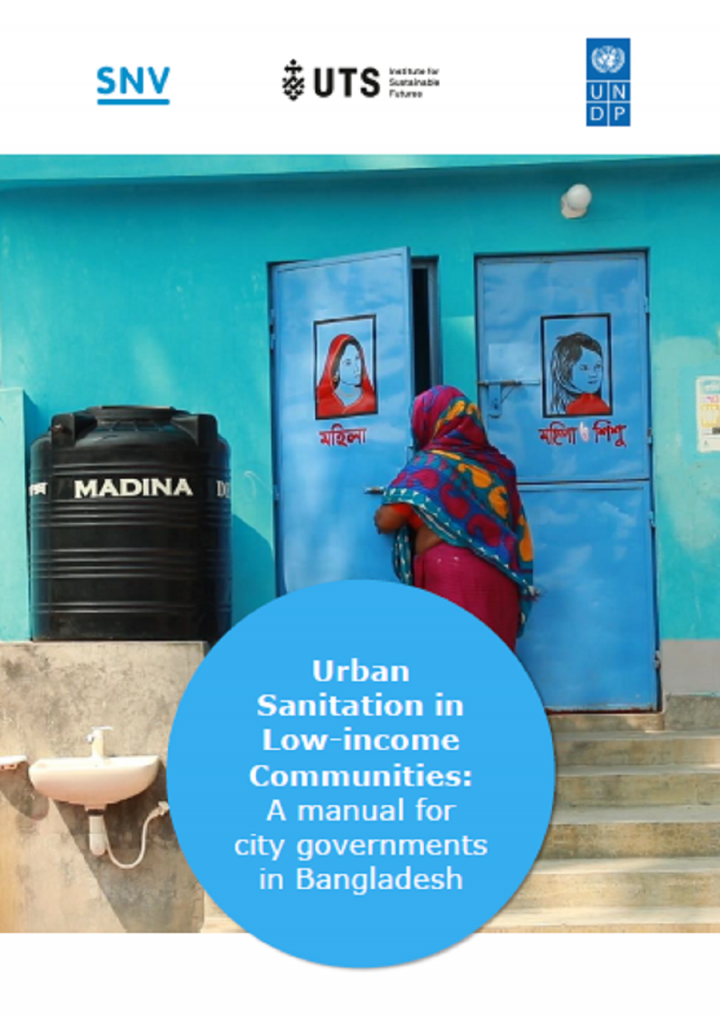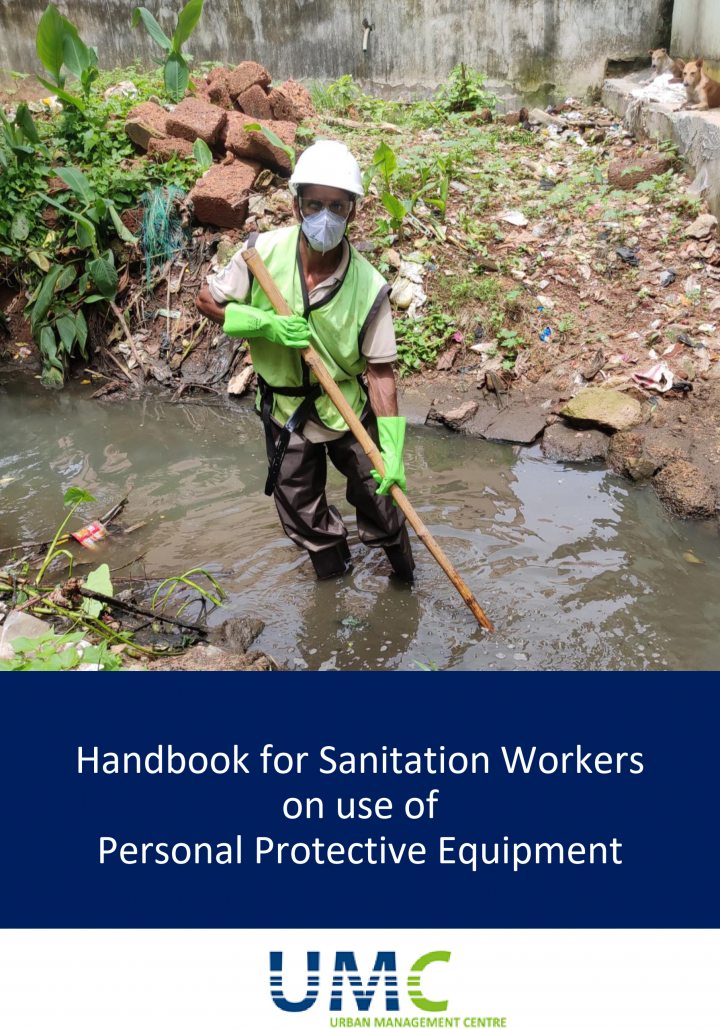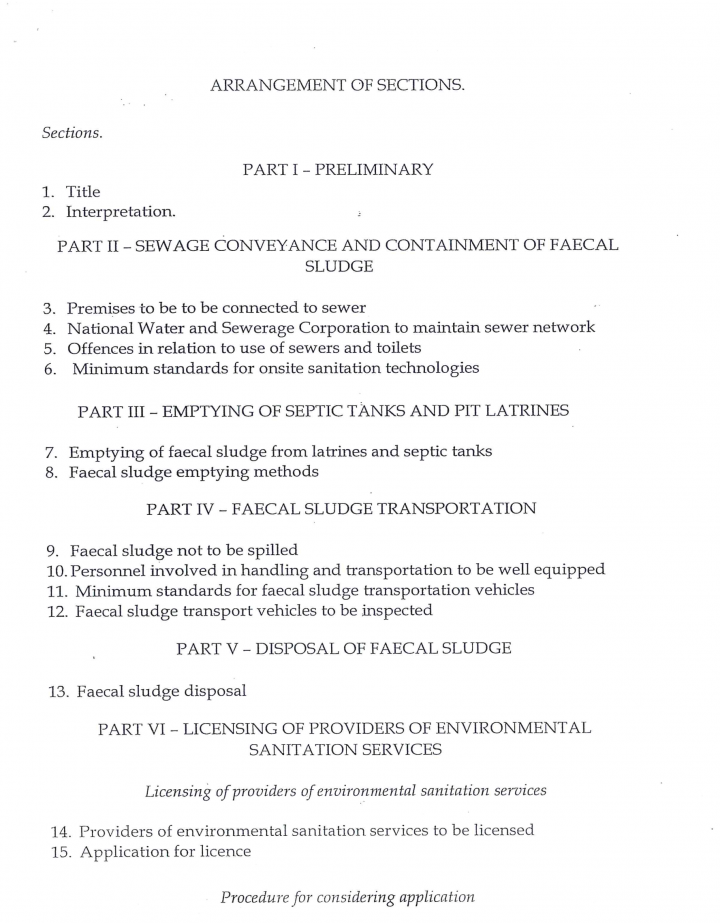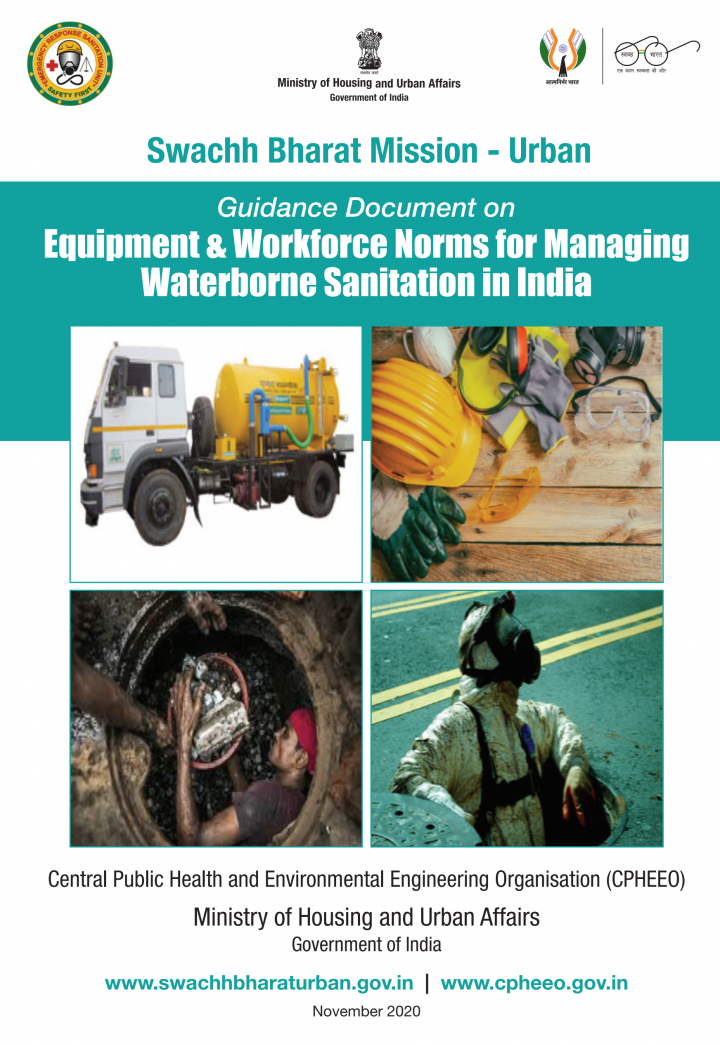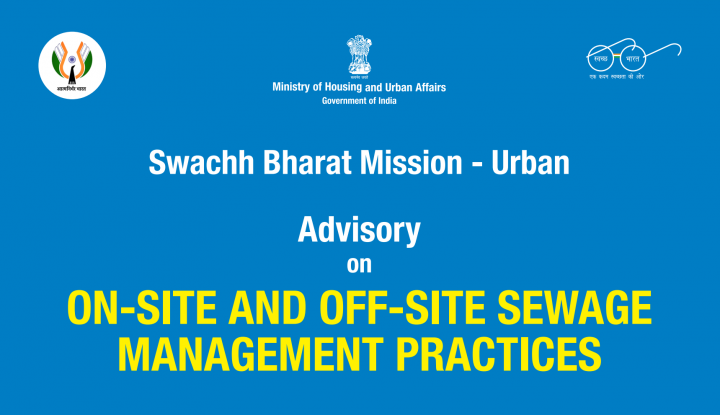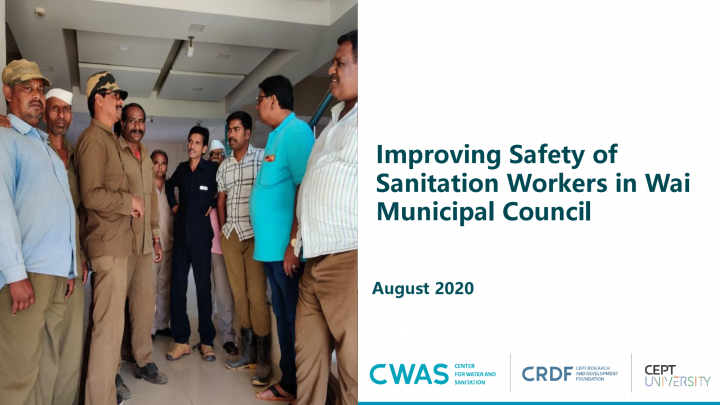Searching for information on Sanitation Workers?
The Sanitation Workers Knowledge + Learning Hub is the best source for all current news, trends, articles and updates on sanitation workers rights around the world.
130 WASHaLOTs placed in public schools, health care facilities, district offices and other public institutions in Kampala and West Nile (Uganda).
In a participatory process, a technology implemented as a pilot is assessed through the perspective of three key stakeholder groups engaged with the implementation of the technology: user/buyer, producer/provider and regulator/ investor/facilitator. …
The WASHaLOT 3.0 is a low-cost and water-saving washing facility. For pandemic preparedness and response, the WASHaLOT 3.0 can be easily adjusted so that fewer water outlets are in use to ensure physical distancing.
This user guide is produced to provide receiving schools with orientation on the WASHaLOT installation, guidance on operation & maintenance as well as recommendations for pandemic …
Efforts to meet SDG target 6.2 overlook sanitation workers' health and safety. In low- and middle-income countries (LMICs), workers lack proper personal protective equipment (PPE), leading to risks of injury and illness. Even when available, PPE is inconsistently used. This study examines PPE usability for sewer cleaners and tank emptiers in tropical countries, finding inadequate design and …
As households move up the sanitation ladder, health risks presumably decline but the corresponding technologies may require increasing operation and maintenance costs. One critique of the ladder is that it prioritizes technology and could be improved if it included a functional approach to monitoring, such as including aspects of environmental sustainability that consider resource recovery. Using …
Massive amounts of investment are needed to meet the United Nations Sustainable Development Goals for water supply and sanitation. However, several challenges have limited the ability to mobilize commercial finance for the sector, including a complex political economy, high transaction costs and an unclear regulatory environment. Investment platforms are an online tool for bringing …
It explains the concept of Citywide Inclusive Sanitation (CWIS) with the Manila Principles on CWIS. It further gives concrete case studies for each of the principles. CWIS is the paradigm shift in approach to urban sanitation, one which encompasses many key elements that are now widely accepted at gold standard.
The baseline survey was conducted in the four states of Bihar, Madhya Pradesh, Uttar Pradesh and Jharkhand. This report has analysed the data generated for the following areas:
a. Manual scavenging (MS) and dry latrines
b. Prevalence of stigma, discrimination, untouchability, gender and caste-based discrimination and violence
c. Participation in community led initiatives for rights and …
Bangladesh has been identified as one of the 20 most vulnerable countries to be affected by the COVID-19 pandemic. Its high population density, poor infrastructure, and low levels of awareness of basic preventive measures culminate in a highly vulnerable and fragile country on the brink of a major crisis, with severe ramifications for public health, the economy and social cohesion. The recent …
Sanitation and waste workers in Bangladesh are generally marginalised, living in congested colonies, slums or informal settlements with limited access to basic services. Lower caste and religious minorities are more likely to engage in collecting garbage and cleaning toilets, emptying pits and septic tanks, often face social exclusion and rampant discrimination. These workers face a greater risk …
WaterAid Pakistan commissioned this rapid assessment research on the knowledge, practices and perspectives of sanitation workers and solid waste collectors about Covid-19 pandemic in Pakistan. The specific objectives of research were to understand the knowledge, practices and concerns of sanitation and waste workers regarding coronavirus, and; to find out the gaps and come up with recommendations …
Nepal imposed a nationwide lockdown from March 25 until June 14, 2020 to contain the spread of COVID-19.
Sanitation and waste workers had to continue providing essential services during the lockdown despite the risk of exposure to coronavirus prevailed. This added risk to occupational and environmental health hazards they regularly face, including illness, injury, and even death. Although these …
The Tamil Nadu Urban Sanitation Support Programme (TNUSSP) has been supporting the Government of Tamil Nadu (GoTN) in achieving total sanitation in the state, and are demonstrating innovations in two model urban locations – Tiruchirappali Corporation, and Periyanaicken-palayam (PNP) and Narasimhanaicken-palayam (NNP) town panchayats. The Bill and Melinda Gates Foundation (BMGF) is supporting …
The Preamble to the Indian Constitution secures to all citizens of India equality of status and opportunity. Equality of opportunity means to give equal chance to every individual for the development of his/her capacity.
Education is a Fundamental Right under Article 21 (A) of the Constitution of India. The Constitution of India under Directive Principles as well as Fundamental Duties also …
There are twin tragedies that are involved in the continued prevalence of manual scavenging in our society. And one tragedy makes the other more tragic. Firstly, it is unfortunate that a country which boasts to be the world’s biggest democracy is still impervious to the fact that we have allowed people (largely women) to be involved with the practice of manual scavenging and cleaning of sewers, …
While sanitation workers already face several health and safety risks, financial challenges and stigma due to the nature of their work and caste-based discrimination, the COVID-19 pandemic has further added to their challenges and vulnerabilities. The Urban Management Centre and WaterAid India jointly conducted a rapid assessment to understand the health, safety and social security challenges …
In the 64th year of the Republic the nation, it was recognized formally through a legislative act, for the second time after the initial 1993 act, that the “dehumanising practice of manual scavenging, arising from the continuing existence of insanitary latrines and a highly iniquitous caste system” that “still persists in various parts of the country” needs to be eradicated and those in …
In India, gender and caste plays a dominant role in the kinds of jobs that women in the workforce are employed in. It is well established that caste and patriarchy are the main compulsive factors that force people, especially women of the specific scheduled caste communities, into manual scavenging. They are into different forms of manual scavenging, mainly cleaning the insanitary dry latrines …
Sanitation workers are the backbone of the public hygiene and waste management system. Despite providing an essential public service, their work is often unrecognised. A majority of the workers too are unaware of the social security and welfare schemes instituted by both the Central and State governments for their wellbeing, which prevents them from availing the benefits such as pension, …
Sanitation workers in India, usually belonging to the most vulnerable and marginalized caste groups and communities, had already been facing several challenges including health risks, low and irregular wages, financial struggles, societal discrimination, and lack of access to social security measures. The COVID-19 pandemic resulted in additional struggles for them, as some of them were required …
This manual is written for local government authorities in Bangladesh, specifically the city corporations and paurashava. However, it contains content useful for other urban sanitation actors in Bangladesh and other low-and middle-income countries.
The purpose of this manual is to provide guidance to local government in Bangladesh on supporting safely managed sanitation in low-income …
• You, as a sanitation worker, are exposed to occupational health and safety hazards. The work involves risk of coming in contact with hazardous biological and chemical agents
• PPEs are a crucial barrier between you and disease-causing agents at the work site
• It has been observed that the usage of PPEs is low. Fellow sanitation workers of yours have shared major reasons for this- …
This Guidance Document on Equipment & Workforce Norms for Managing Waterborne Sanitation in India is prepared keeping in view the Safai-mitra Suraksha Challenge, 2021.
All sanitary structures like sewer and septic tanks which manage sewage are susceptible to getting choked at some point of time due to ingress and settling of solids and require regular cleaning or maintenance. Cleaning of sewer …
The fast pace of urbanization – primarily due to the quest for good quality education, healthcare facilities, job opportunities, rapid changes in lifestyle and growing aspirations in urban areas– coupled with spurt in economic activities has compounded the sanitation challenges in urban areas, as creation of sanitation infrastructure could not keep pace with urbanization. India is signatory …
In 2018, Wai was chosen as one of the eight cities across the globe for the City Wide Inclusive Sanitation Program (CWIS) funded by Bill & Melinda Gates Foundation (BMGF). The municipal council of Wai (WMC) with support from Center of Water and Sanitation (CWAS), CRDF, CEPT University (CEPT) is aiming to implement the CWIS goals
and principles in Wai.
Under the CWIS framework, one of the …

